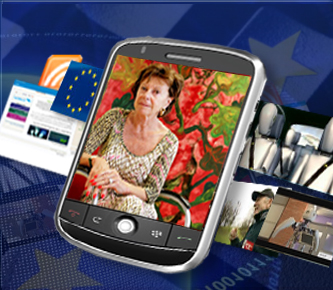
The European Commission has laid out the rules and policy proposals it hopes will guide the development of broadband development in Europe for the next decade, calling for basic broadband access to be available by 2013 and 30 Mbps minimum broadband to be available by 2020. The proposal also sets aside portions of the 800 MHz spectrum band—currently being vacated by analog television broadcasters—and dedicates them to mobile broadband by 2013.
“Fast broadband is digital oxygen, essential for Europe’s prosperity and well-being,” said digital agenda commissioner Neelie Kroes, in a speech earlier this week. “No one doubts that Europe will be better off if we get everyone online. It is, of course, much harder to make tough policy choices and get the major investments needed to realize those goals.”
The investment will be substantial: the European Commission estimates the cost of its broadband plan to be between €180 and €270 (roughly US$240 billion to US$360 billion.
Setting aside spectrum for wireless broadband will be particularly important for rural areas, where the costs of bringing fiber and other high-bandwidth physical infrastructure to users is not economically feasible. Kroes also suggested that while urban areas and populated regions would likely have the luxury of being served by many separate telcos—and thus require only light regulatory management—telcos in rural areas might not see much competition, and those require closer attention from regulators to protect consumers.
The policy guidance also rules out regulatory “holidays” as companies begin to lay out fiber infrastructure: companies will be faced with the full force of regulation from the get-go, with national regulators able to determine whether dominant players will be required to open their networks to competitors. However, Kroes promised telcos will be able to price their services at levels that “reflect investment risk”—in other words, broadband might become widely available under the EC framework, but it won’t necessarily be inexpensive.
An important goal of the European Commission’s framework is to avoid serious discrepancies in pricing and services in EU member states’ telecom markets. On the mobile front, Kroes is particularly keen to create a single competitive market in Europe, such that “roaming fees” for users moving between EU member states only vary with the cost of supplying service.


